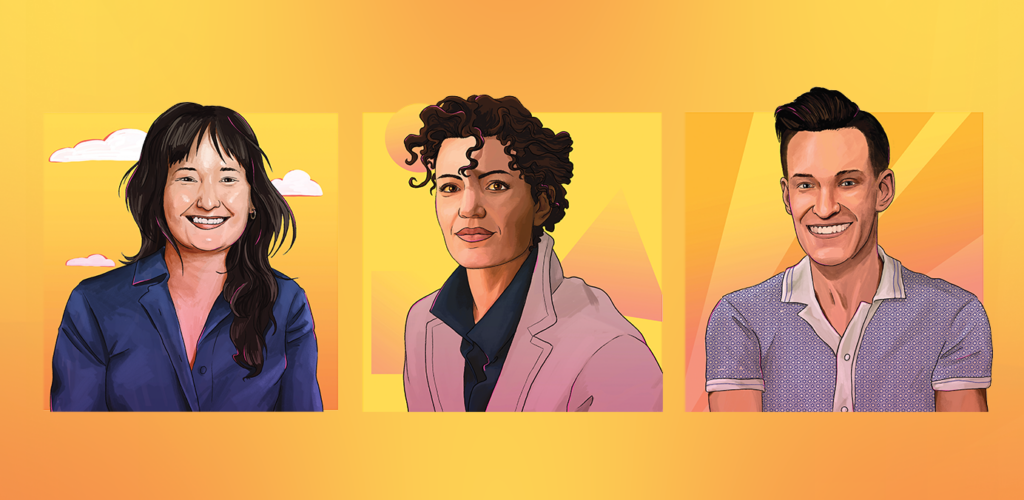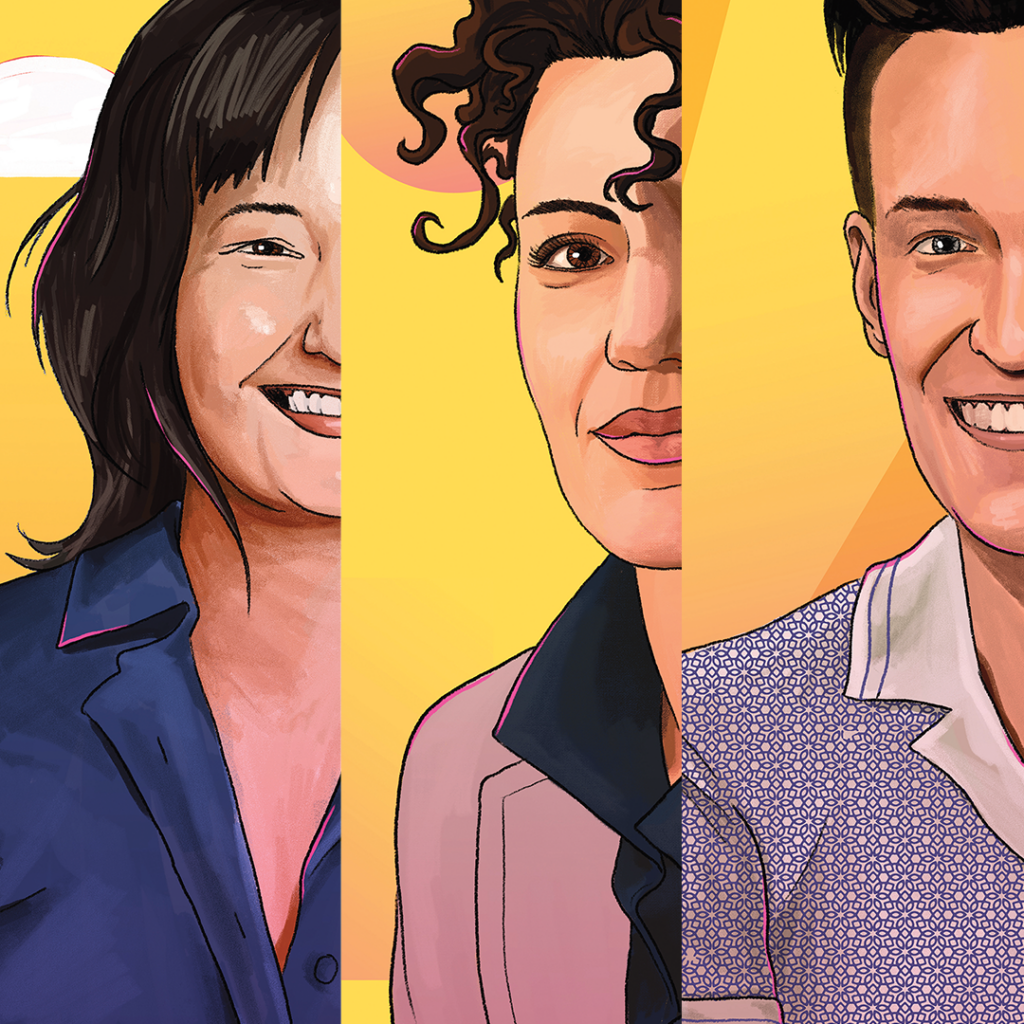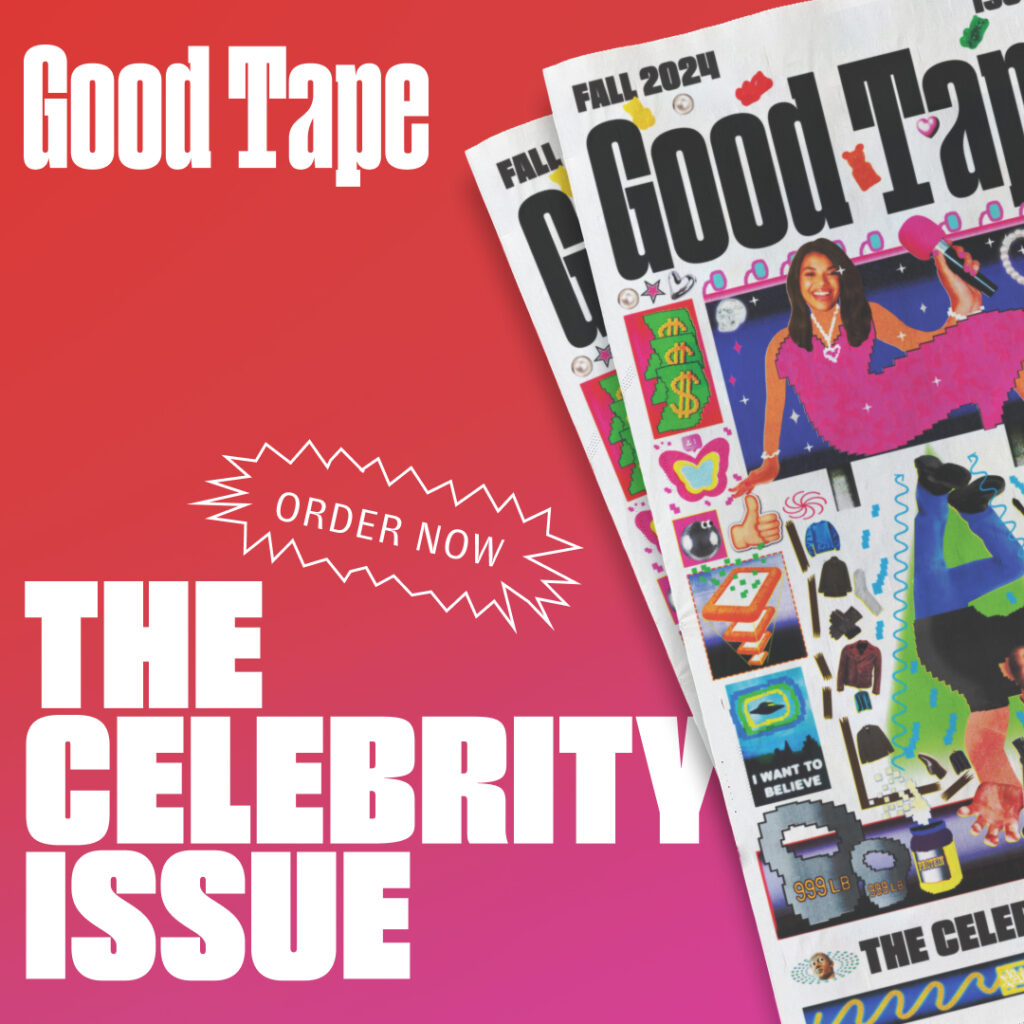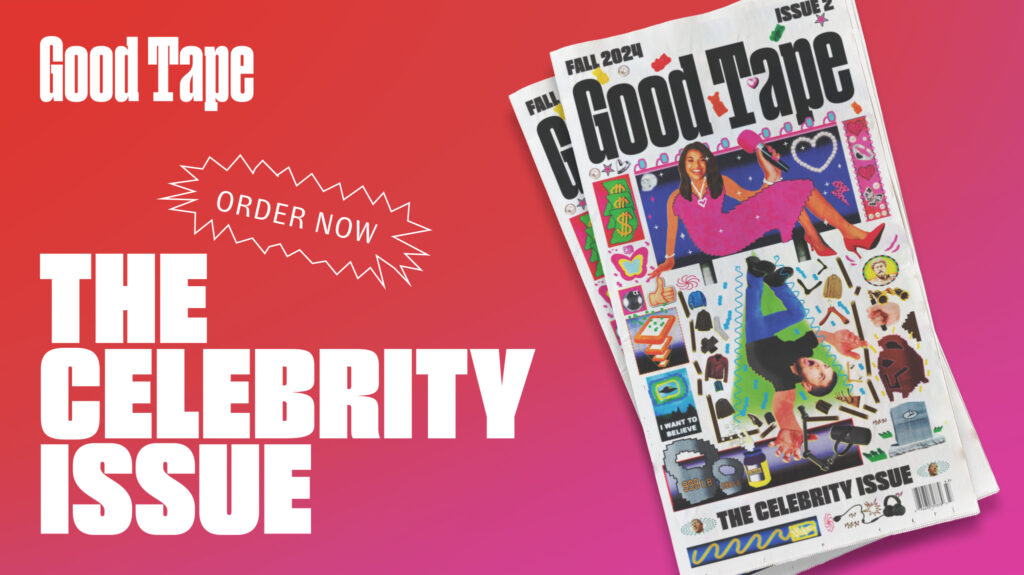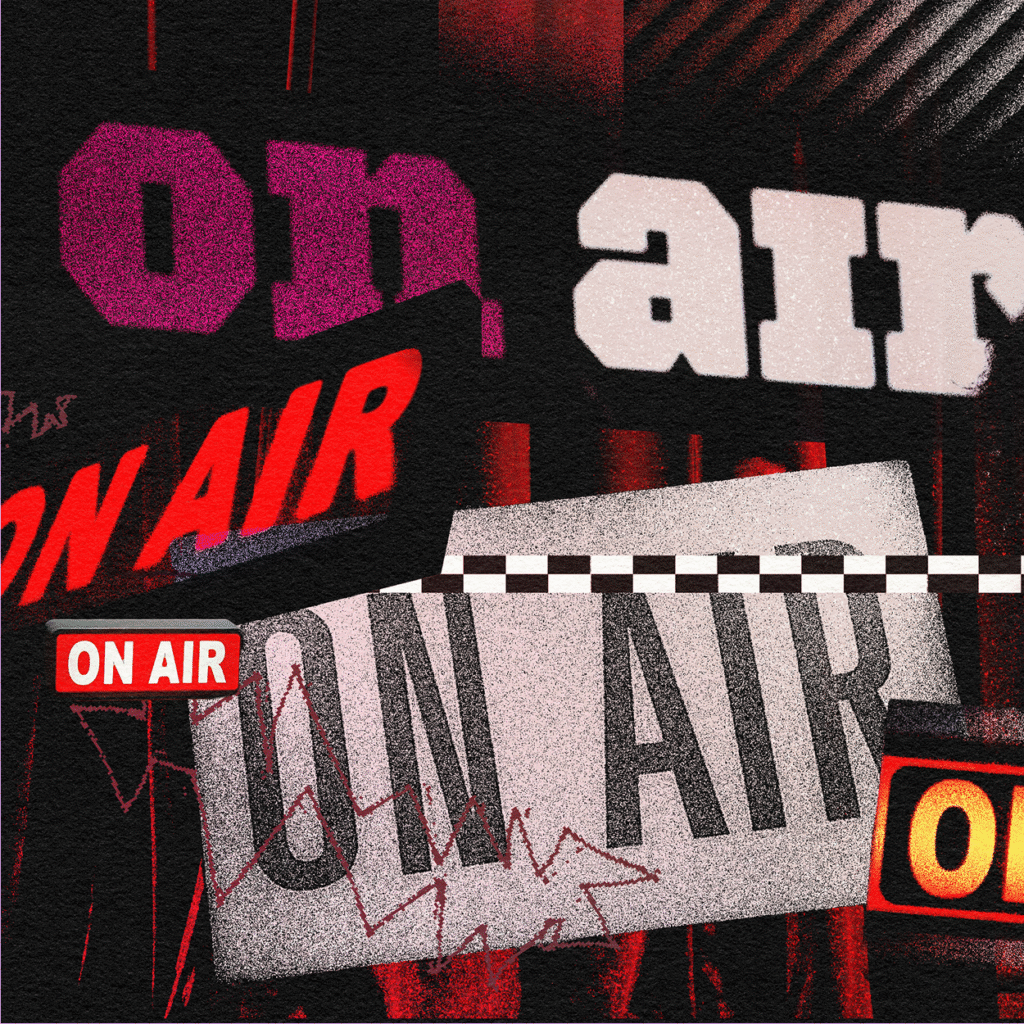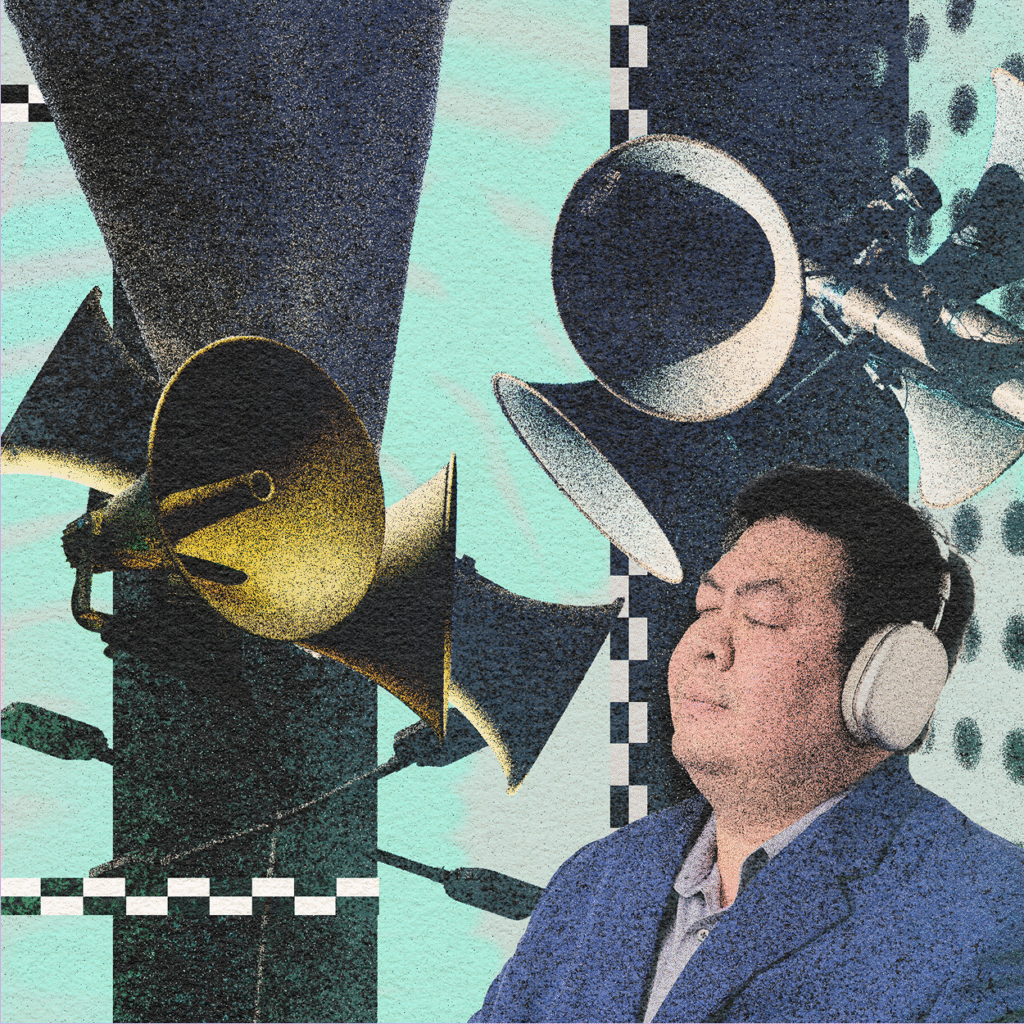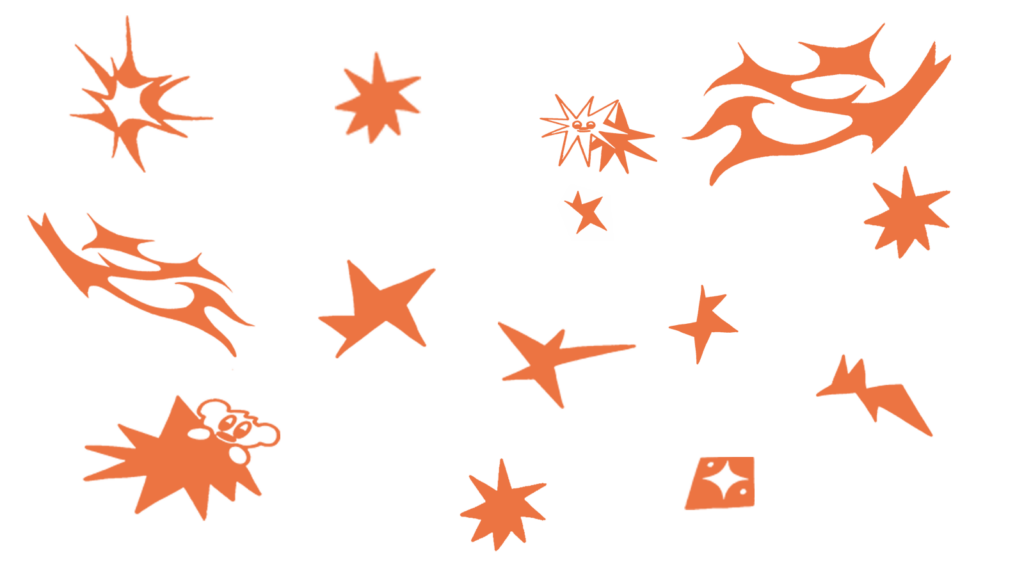You’re Podcast Famous to Me
There’s Famous Famous, and then there’s Podcast Famous. Author and podcaster Hank Green defined fame best in his 2018 novel, “An Absolutely Remarkable Thing,” through the lens of a newly-famous protagonist who identifies different tiers of fame. Ranging from Tier 1: Popularity (“You are a big deal in your high school or neighborhood”) to Tier 5: Divinity (“You are known by every person in your world, and you are such a big deal that they no longer consider you a person”), I would place most podcast fame at Tier 3: Working-Class Fame (“A lot of people know who you are and they are distributed around the world. There’s a good chance that a stranger will approach you to say hi at the grocery store.”)
While creators of beloved podcasts might receive industry notoriety or some awkward encounters with fans, it’s a far cry from the brand of fame celebrities in other media receive. And when those two worlds overlap, when the Famous Famous try their hand at podcasting, there’s typically a tension between them and the aspiring Podcast Famous.
But are chart-topping celebrities really the threat to the DIY space we sometimes act like they are? To talk about being Podcast Famous and famous people making podcasts, I spoke separately with people who are Podcast Famous to me: Alex Sujong Laughlin (“Normal Gossip,” “Name Dropping,” and other great work at Defector), Avery Trufelman (“Articles of Interest,” “99% Invisible,” “Nice Try!,” and “The Cut”), and Mike Schubert (“Potterless,” “The Newest Olympian,” and “Meddling Adults”). Here’s a selection of quotes from our conversations, grouped by recurring themes, starting with one embarrassing question:
DO YOU THINK YOU’RE PODCAST FAMOUS?
Alex Sujong Laughlin: It’s like, so deeply embarrassing. That’s such an embarrassing phrase. But unfortunately, a reluctant yes?
Avery Trufelman: No, no, no, no. I don’t feel it. I don’t know. It definitely doesn’t feel that way.
Mike Schubert: I mean… I… yes. I’m not famous enough that I can tweet out, “Hey, I want to guest on your podcast!” and lots of big shows want to have me on. But that’s the joy of podcast fame: you can have so many different levels of it. “Potterless” in its heyday was getting 100 to 220 thousand downloads within a month. “The Newest Olympian,” that’s closer to 30 to 40 thousand downloads, but it has more Patreon subscribers.
IS THERE SUCH A THING AS BEING PODCAST FAMOUS?
Alex: Podcast fame is a very specific, niche kind of fame. I’m not sure it even qualifies as fame, to be honest. It’s a side effect of the parasocial relationships listeners develop with hosts because our brains can’t tell the difference between podcasts and talking on the phone. So it’s this feeling like you know the person on a deep, personal level, because you know their voice. This only starts to qualify as fame when it’s multiplied across many, many listeners. Even still, I think the difference between podcast fame and fame fame is really clear. When I saw Hillary Clinton in person at a restaurant, my entire body froze and I panicked because this figure who I’ve known from politics and pop culture for my entire life was right in front of me. I was kind of incapacitated for the rest of my meal because I was like, “How am I supposed to eat next to Hillary Clinton?” Compare that to my response when I met my favorite podcast hosts back in 2017: I immediately felt like I knew them. I felt at ease, like I was chatting with two old friends.
Avery: I used to say being podcast famous is like ‘jumbo shrimp’: unless you’re Alex Cooper and getting spotlights during the Olympics, it’s an oxymoron. Sometimes it’s cool that someone will recognize me, but it is a super rare and special thing, in my case!
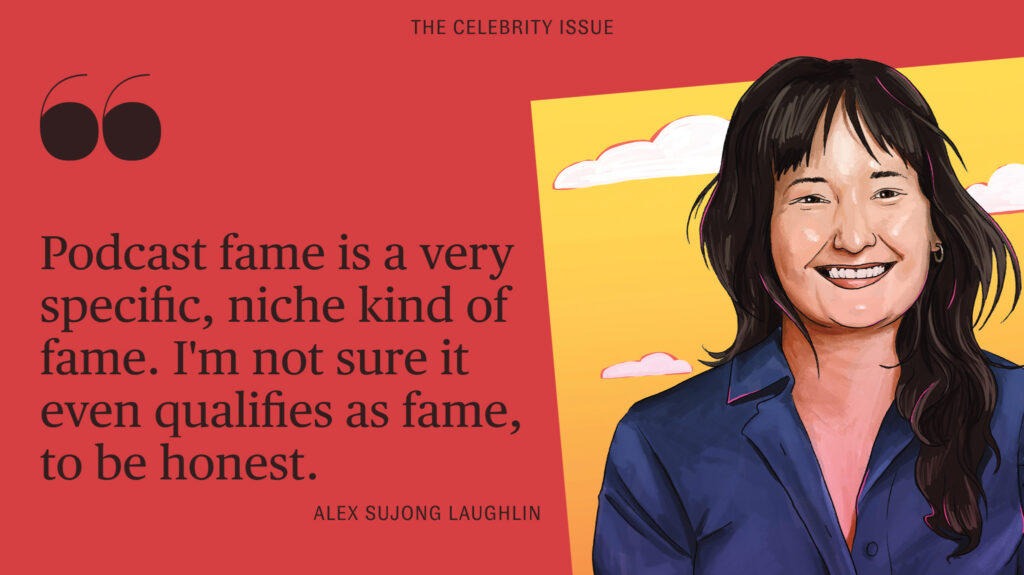
WHAT’S THE DIFFERENCE BETWEEN BEING PODCAST FAMOUS AND FAMOUS FAMOUS?
Alex: I think there are a couple different metrics. The first is maybe just industry-level recognition. Do the people who make work in this medium know who you are? My experience of being in the audio industry was one of climbing uphill for so long that there was a stark difference in how people interacted with me before and after “Normal Gossip.” I was a freelancer when “Normal Gossip” launched and I constantly emailed folks looking for work, and most of my emails went unanswered. Now, they mostly don’t. Not only that, but work comes to me, even though I am working full time with Defector. So that’s a really distinctive marker of a change of status, even though I personally don’t feel any different.
Mike: Here’s my trick: tell someone you’re going to someone’s show and if they say “Who?,” you know they’re not famous famous. Someone who’s really famous, a lot of people know about them and care about them a little bit. People who are podcast famous have fewer people who know about them, but they care way more.
Avery: Being a podcaster just feels like an utterly contemptible vocation at this moment in time. I guess it always has been. I was just at this fashion showcase, and I was going around and I would keep introducing myself. I think the fundamental baseline of saying “I have a podcast” is so embarrassing. People would look at me with something amounting to pity. It was so embarrassing.
Alex: Podcast fame is mediated through a really accessible set of technologies. For someone to be Ariana Grande famous is evidence of them participating in this entire machine. Even the fanciest podcast person is more of a normal person than Ariana Grande is. Maybe it’s a sense of humility. I think podcasting is kind of embarrassing, it’s kind of nerdy, and the democratized nature of it means that it feels like these people are closer to you. I remember really, really, really not long ago, when I would say “I work in podcasting” or “I want to work in podcasting,” I’d be met with blank stares. I’d have to be like, “It’s radio, but it’s on the internet. You can download it for your iPod.” More literacy broadly about what the medium even is is a good thing.
Mike: COVID lockdown did wonders for podcasting and people recognizing that it’s hard and costs money, so I think I gained a lot of respect for doing it full-time. Before that, it was mostly questions like, “What is a podcast?” Then, when I went full-time, the questions were more, “You can make money doing that? You can pay the bills?!”
ON FANS KNOWING YOU, BUT NOT KNOWING YOU
Avery: If someone feels like they know you, they don’t tend to ask you a lot of questions, which is how I always know when someone has listened to the show: they’re weirdly not asking me anything. They already kind of know the answer to the questions, so they just end up talking about themselves, which I totally understand. Like, if I would be confronted with Charli XCX, I wouldn’t be like, “So what do you do?” I would probably just try to make her think I was cool.
Alex: It’s a niche type of fame; you’re not famous to everybody walking down the street, but I know my co-host Kelsey has been out in public at a restaurant talking, and then somebody will flip around and say, “Oh my god, are you Kelsey McKinney from ‘Normal Gossip?’” because they recognize the voice. I recently moved to a new city, and I was walking to my coworking space. This person was crossing the street, and I was crossing the street, and they were walking their dog, and they waved at me. And I was like, “Oh, do I know you?” and they were like, “Oh my god, I just realized I don’t know you in real life.” They were very nice about it.
Mike: Podcast listeners feel more invested, and they feel like they know the host. If you had a friend in your life that you spoke with for an hour a week, that’s the best man at your wedding! That’s bridesmaid territory! That’s your greatest friend, your closest relative. Even though it’s not a two-sided conversation, the host is still talking about their life, so I totally get it.
ON THE FAMOUS FAMOUS MAKING PODCASTS
Avery: The thing I’ve always maintained is I’m not against it. As our good friend Meghan Markle proved, not everybody can do it. And I think I feel about podcasts like I feel about children’s books. There was this era where every celebrity was like, “I’m going to write a children’s book,” remember? It was mostly annoying, but some were great. So the thing is, it takes 100 shitty celebrity podcasts to get one really good one. Dax Shepard’s really good at it. I was really rooting for Emily Ratajkowski’s podcast. I thought that was fantastic. I love being proven wrong. It’s not like I’m threatened by them.
Alex: I feel pretty whatever about it. I tend to think about podcasting, and audio broadly, the way we think about books and movies. Are there too many celebrity memoirs? Not necessarily. The thing that’s more concerning is what that investment in a celebrity name means for the industry. This investment in something flashy to grab people rather than a slower investment in something that is the product of time, craft, and work. Not to say that these celebrity podcasts are not the product of work, but their main selling point is not an interesting format or idea. It’s access to a celebrity. I think there’s room for that in the industry, and I don’t think they should be killed, but it does signal where the priorities are among the people who are making these decisions with the money.
Mike: The biggest thing that it creates stress around is advertising. Deals are way harder to come by post-COVID. Celebrity podcasts take ad spend potential away. Stitchfix, Betterhelp, and Hello Fresh, for example: those big podcast advertisers went with the safe bets. They’re going with shows like “Smartless.” What upsets me more is that some of these podcasts are just bad. But there’s others that are really good: “Films To Be Buried With” with Brett Goldstein is my favorite. It started when nobody knew who he was, nobody knew his guests, and it was a good show. And then he became super famous—he’s Roy Kent!—but it’s still good. And sometimes there are these shows that are really good and well produced, but the people doing them do not hype up the production team enough, and it bothers me so much.
ON CELEBRITIES TOPPING THE PODCAST CHARTS
Avery: That’s how media works. And also, honestly, it’s how humanity works. I can’t get mad at our stupid lizard brains for being like, well, I know that person. Of course we’re going to be more interested in a name we know than a name we don’t know.
Alex: My aunt subscribes to two podcasts: the Kelce Boys’ show, “New Heights,” and “Normal Gossip.” Those are the two podcasts she listens to. Celebrities are an entry point to lots of culture. Celebrities are how we get into movies a lot of the time. The people who are into film as an art form are into it for other reasons, but for the most part, we’re like, “I want to go see the new Pedro Pascal movie, because I want to see him.” There is something to having a figurehead, an icon, who can hold all of these presumptions and expectations and cultural weight that are needed to persuade a person to consume a piece of media.
Mike: My chart positions are not as good as they once were, but I don’t just aimlessly scroll the podcast charts to decide what to listen to. I don’t think, “I like books! What’s in the top 50 book podcasts?” I don’t know how many people do that. I think some people like to flex that they’ve charted, and it’s a cool feeling. But at the end of the day, the more impactful way of your show gaining listeners is word of mouth.
![]()
Wil Williams is a journalist and the CEO of Hug House Productions, where they’ve created urban fantasy audio drama “VALENCE,” Animorphs first read podcast “Nevermorphed,” and more. They currently work in podcast marketing at Tink Media.
